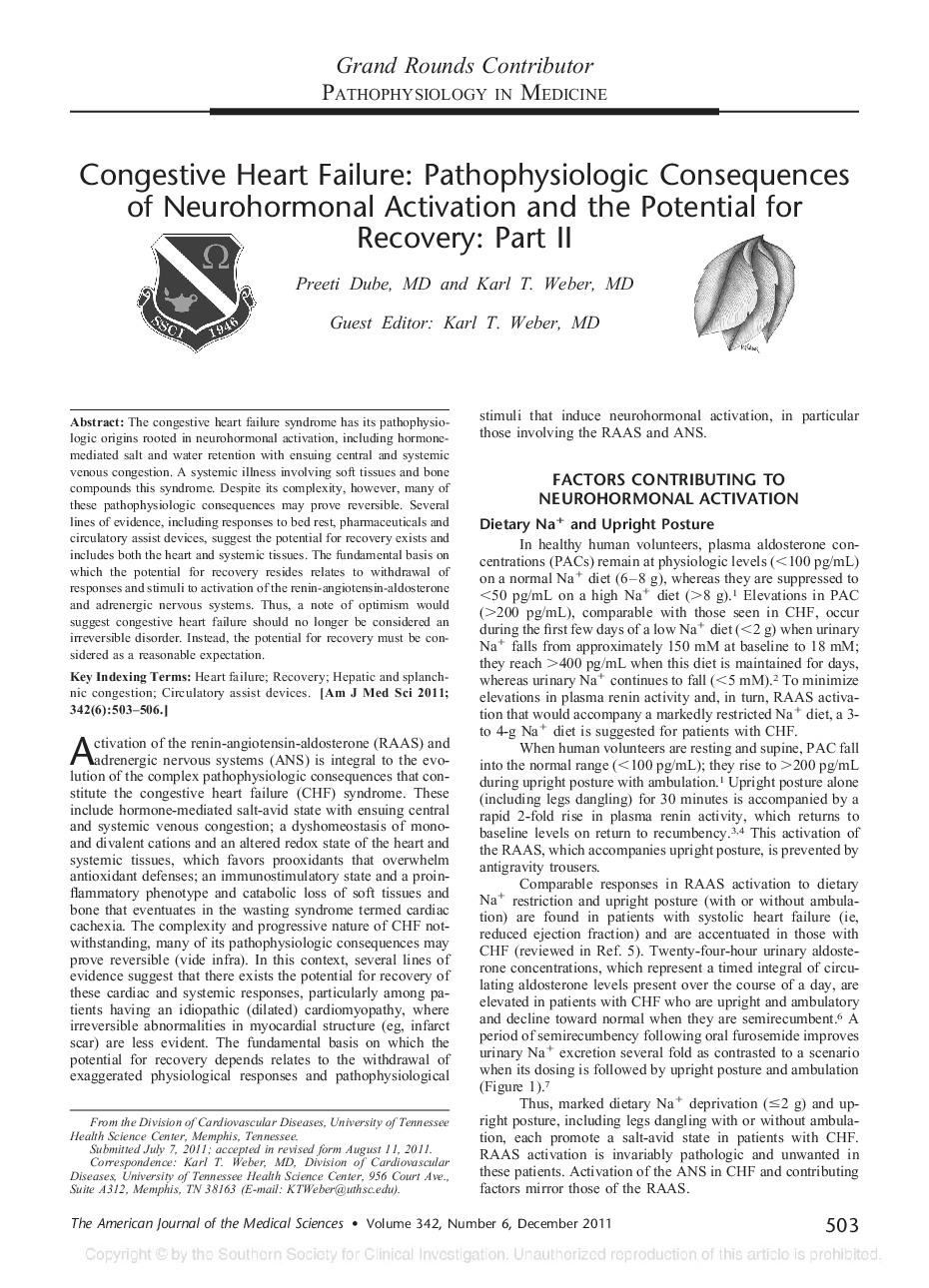| Article ID | Journal | Published Year | Pages | File Type |
|---|---|---|---|---|
| 2864078 | The American Journal of the Medical Sciences | 2011 | 4 Pages |
Abstract
The congestive heart failure syndrome has its pathophysiologic origins rooted in neurohormonal activation, including hormone-mediated salt and water retention with ensuing central and systemic venous congestion. A systemic illness involving soft tissues and bone compounds this syndrome. Despite its complexity, however, many of these pathophysiologic consequences may prove reversible. Several lines of evidence, including responses to bed rest, pharmaceuticals and circulatory assist devices, suggest the potential for recovery exists and includes both the heart and systemic tissues. The fundamental basis on which the potential for recovery resides relates to withdrawal of responses and stimuli to activation of the renin-angiotensin-aldosterone and adrenergic nervous systems. Thus, a note of optimism would suggest congestive heart failure should no longer be considered an irreversible disorder. Instead, the potential for recovery must be considered as a reasonable expectation.
Related Topics
Health Sciences
Medicine and Dentistry
Cardiology and Cardiovascular Medicine
Authors
Preeti MD, Karl T. MD, Karl T. (Guest Editor),
